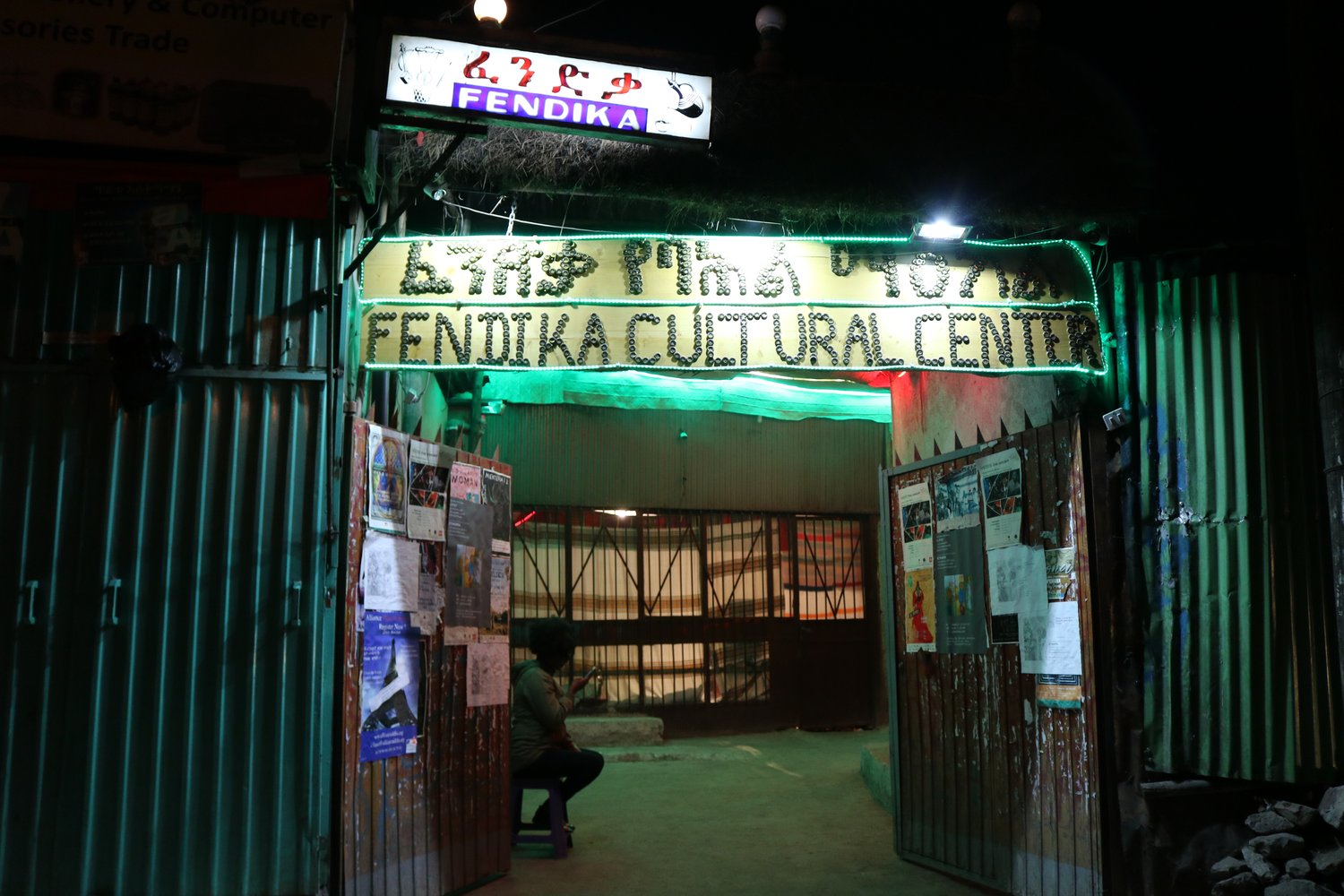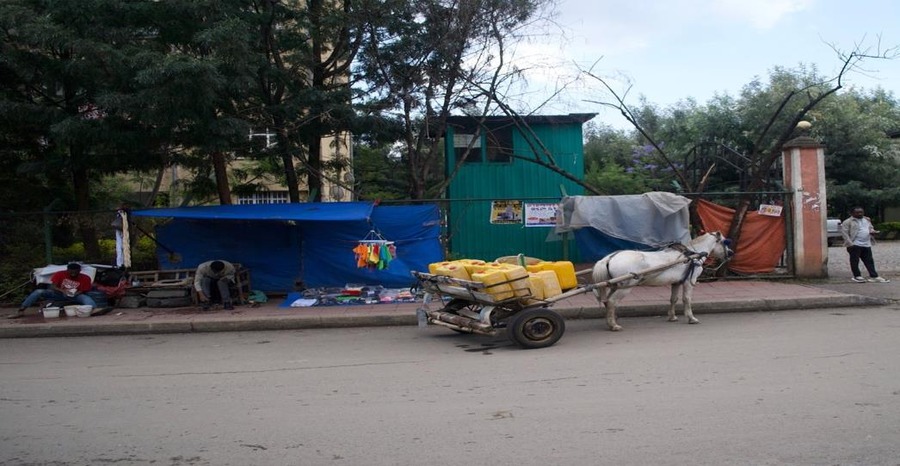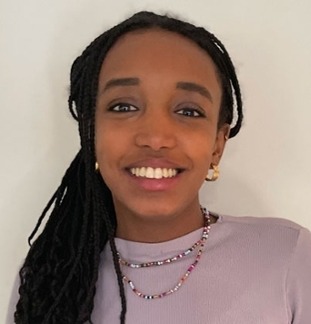In her award-winning thesis, Rachel Dubale reveals how Ethiopian social communal practices that secure financial resources dissolve, as urban development projects rise.
In February 2024, Rachel Dubale won Leiden University’s Africa Thesis Award. Dubale, currently in her 20s, completed her research master’s degree in African Studies at Leiden University in 2023. The motivation for her research, titled “They think we can eat the condominium.” Chronicles of Economic, Social and Political Practices in Addis Ababa’s Condominiums, was born in her grandmother’s house. An interview.
“My parents are from Ethiopia, but I was born and raised in Italy. Every two years, I would go to Ethiopia for two months during summer break and stay at my grandmother’s place. So, for a long time, most of my memories of Ethiopia centred around my grandmother’s house … which was not a proper house, it was more like a ‘shack’. It was very informal, made of mud, but it was in the city centre. Looking back now, it made my grandmother’s house very interesting to my eyes. In European countries, houses in the city centre are usually formal and somewhat luxurious, while in these areas in Addis Ababa, Ethiopia’s capital, informal houses dominate the landscape.”
“You would find all the commodities of living in the centre, such as being close to everything. But from the outside, it looks as if you would still be living in poor conditions. But is that really the case? To me it felt good, being there with my family.”
Dubale’s grandmother’s house was demolished in 2010 to make space for urban development projects. Many Addis Ababans were forced to relocate from their homes to condominiums, housing complexes which consist of multiple units. Consequently, former longtime neighbours, circles of friends and relatives, and communities find themselves dispersed across the city. How does that affect the social and political practices intrinsic to Ethiopian culture?
“For example, look at practices such as Iddir and Eqqub, both of which involve pooling resources. In Ethiopian communities, they serve as means to access money. In the old neighbourhoods, they were based on reciprocity and trust. For instance, with Iddir one would consider: ‘Someone is getting married, let’s pool resources together and try to financially support them, as they cannot cover all the marriage expenses.’ On the other hand, Eqqub involves smaller groups of people saving money in a rotating mechanism. For example, four people each contribute 10 birr (Ethiopian currency) monthly. Every month, one person collects the total – that makes 40 birr – and the rotation continues to the next person the following month. It’s just a way to secure your money. As my cousins say: ‘When you have them in your pocket, you wouldn’t save them.’”
“If you have stayed in your neighbourhood for 70 years, as many older people did, you would naturally trust people and just pool money. But if these communities are getting disrupted and people are moved to different areas of Addis, you will become a stranger in a new neighbourhood. It will make it very difficult to keep up systems like Eqqub or Iddir. And remember, it’s not only about pooling resources, it’s also about meeting, talking, having a drink. In a new neighbourhood, you have to start afresh. But how do you trust people? You don’t know them.”
In her thesis, Dubale observes that people on the ground are rarely consulted; their wishes are not being taken into account at higher, decision-making levels. But it not only the local populace that are affected by the removals.

“People from the diaspora or officials working for the African Union or other international organisations were regular patrons of Fendika, a cultural centre in the area scheduled for demolition last year. And tourists visited Piazza, the historic district of Addis, which now is in the process of being demolished. Supposedly, all of these recreational areas are meant to create new memories in fresh, new spaces, but what’s the sense of doing that? Ethiopia has such a rich history! I feel it’s crazy to implement all these new urban plans with such speed, with no consultation. I don’t understand.”
Dubale has no problem with projects aimed at modernising Ethiopia, as these could help to improve living conditions – and industrialisation may grow the economy. But there should be better ways to do it. While many condominiums are being built at present, and thus many people relocated, she says that ways of consultation must be discovered. At the same time, “people just might get used to these new realities.” Eqqub and Iddir even may survive when “people find new ways of living.” Dubale: “As a researcher, my responsibility was to observe how projects translated on the ground, and understand people’s perceptions of them … If these opinions are acknowledged in the future, perhaps such developments could be improved.”
For that to happen, it would be great if her thesis would be translated into Amharic. Dubale: “You want to understand how local people perceive these developments. Back in the day, when people were moved, many saw it positively. The government portrayed it as an improvement in their lives. But many people I interviewed then find out that the condominiums they moved to lack running water or electricity. It needed significant pressure to get these services installed.”

These are some of the basic needs for living. But there are other important things you cannot buy. Dubale: “The affection you feel for someone, the memories you share, and even the familiarity of a place – all of these are deeply intertwined. What does a shared garden in a condominium complex offer compared to the myriad of common spaces you shared in the old neighbourhood? It must be understood that things broken or demolished cannot come back. In an ideal scenario, decisions wouldn’t be driven only for the sake of modernisation; instead, they would involve genuine listening to and involvement of people [impacted by] these far reaching changes. How should we address this? This kind of policy making, sometimes necessarily top-down, I want to further explore in the future. But grassroots people’s voices need to be heard. New recreational spaces must be created with a focus on social interaction. And, please, don’t cut off our heritage.”

Rachel Dubale is the Policy Research Assistant at the Africa Europe Foundation, responsible for monitoring commitments within the AU-EU partnership. She obtained her bachelor's degree in International Relations from the University of Bologna and completed her research master's degree in African Studies from Leiden University. With her outstanding master's thesis, she won the Leiden University Africa Thesis Award, which led to this interview. Read more by Dubale on Africa Is A Country:
Nyoxani Mazive is the current Newsroom Coordinator at ZAM Magazine. He obtained a bachelor's degree in Philosophy, Politics, and Economics from the Vrije Universiteit Amsterdam.
Call to Action
ZAM believes that knowledge should be shared globally. Only by bringing multiple perspectives on a story is it possible to make accurate and informed decisions.
And that’s why we don’t have a paywall in place on our site. But we can’t do this without your valuable financial support. Donate to ZAM today and keep our platform free for all. Donate here.


